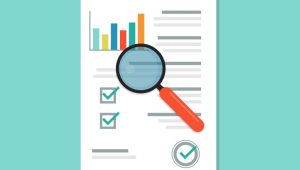Financial Planning for Young Professionals: Setting Up for Success
 Publié le 26 July 2024
Publié le 26 July 2024
For anyone starting their career, financial planning for young professionals is an important part of setting up for success.
For young people taking their first steps into their professional lives, they are looking forward to building their careers and earning a good living. With the newfound freedom that comes with a career, comes the responsibility to manage your finances effectively so that it helps you build a better future for yourself and your loved ones.
In a world where financial planning is instrumental for success, the art of allocating your money in the right places and making it work for you is crucial. Financial planning for your professional needs to address the basics steps requires setting up for success and ensuring proper financial health into the future.
- Understand Your Financial Situation
Young professionals need to have a clear understanding of their current financial standing. You should start by creating a budget that outlines your monthly income from your part-time job, side gigs, or any other sources.
And to help yourself further, you can get assistance from budgeting apps. These are a simple and effective way to track your finances, including spending and earnings. This way might be particularly useful if you have an impulsive attitude towards money, as the clear information provided in the apps can help you eliminate any biases and think objectively.
- Set Clear Financial Goals
Once you’ve had a clear understanding of the previous financial advice for young adults, it’s time to clarify your financial goals for yourself. It can be living comfortably; helping your community; helping the poor; supporting family; anything goes, as long as you are clear and honest with yourself about your goals
Following this, we’d advise you to break your goals down in reverse order and then implement the SMART formula. It stands for Specific, Measurable, Achievable, Realistic, and Time-bound. Looking at your goals in this clear way reduces your chances of procrastinating.
- Build an Emergency Fund
Now that you’ve set goals, the next financial advice for young professionals would be to take the first step towards achieving them. And saving up is one of the most important steps. Ideally, you should save for the coming twelve months as an emergency fund.
This is a fund that you only use in the case of real emergencies. Because let’s face it, medical expenses, accidents, or sudden job loss can occur anytime, and an emergency fund can help reduce the financial burden. A general rule is to save three to four months of expenses, but there is no strict rule. Putting a bit of money away each month is a simple way to build your emergency fund.
- Manage Debt Wisely
Proper debt management is one of the most important financial planning skills that young professionals should learn to master. Debt can accumulate very quickly, and high interest rates can cause it to compound even faster.
Sometimes, however, it is impossible to avoid debt.
And in most cases, people choose to borrow more money and eventually land in a debt trap. Such a scenario not only eats up your financial confidence but in some cases causes embarrassment also. So, the best effort towards personal finance freedom for young professionals is to clear debts as soon as you can.
- Start Investing Early
The next step after clearing off your debts as a young working professional is to start investing no matter how small the amount might seem. Cause you see, the power of compounding interest is huge, and therefore the sooner you get started the better. You can still earn more money but you cannot buy back time.
There are plenty of investment avenues, from the stock market to REITs, the scope is huge. But remember to learn about it as much as you can before leaping. Education is indispensable here. Risky investments can quickly lead to financial ruin. Be sure to speak with education professionals before making any financial decisions.
- Live Below Your Means
This might be hard to swallow but if you can live below your means, then it will be much easier to build a financial foundation and invest for your future. Living below your means doesn’t mean that you compromise on your lifestyle but it rather tells you to discard unnecessary expenses.
Get started with this and you’ll soon be equipped with the skill of cutting down costs and focusing on the essentials. This way you reduce the mumbo jumbo from your life as well because more objects give rise to a never-ending desire to accumulate more.
- Plan for Major Life Events
As a young working professional, you’ve learnt to save, invest, and live below your means. Your next step would be to plan for big events that you’ve decided will be an important part of your life. This could be your further studies, wedding, buying a house, and so on.
The sooner you plan, the sooner you can build a financial foundation that will allow you to achieve these future plans. You can break them down into different categories according to urgency and desirability. Here too, you must be brutally honest with yourself about which goals matter the most and allocate your finances accordingly.
- Protect Your Assets
Next up, we have to protect the assets that you’ve accumulated, right? Then insurance can be a great help. This is often overlooked by young professionals but it would be a mistake to do so
Now, insurance for young professionals can be of all sorts, home, car, health, etc. Here too, you need to set your priorities right and then allocate your funds accordingly. But in no case, compromise on your health insurance because health is wealth. Having insurance can lessen the financial burden if something unexpected happens, and help you avoid using all your savings.
- Continuously Educate Yourself
Compromises should not be made with your education in personal finance for young professionals. There can be sudden changes to financial markets and technologies, and a commitment to continuous learning and education can help you keep up with the latest developments
You can start by reading finance books, following reputed newsletters, listening to podcasts, attending workshops or seminars, etc. The whole point is to stay updated with the latest trends and fads.
- Seek Professional Advice
If financial planning seems overwhelming to you then you can always seek professional advice from a person who’s informed. This might be an accountant, a financial advisor, or just a financial mentor.
The designation doesn’t matter, what matters is the readiness with which they are willing to entertain novice questions about personal finance for young professionals. Don’t be afraid to ask these questions, as this is the best way to learn and expand your knowledge.
Conclusion
To put all of this best financial advice for young adults together, we’d say that financial planning and education is a lifelong journey which begins with clarifying your objectives, tracking them, saving up for them, and learning how to make your money work for you. And starting this early can help you shoot your finances to a whole new level when you have a surplus amount of money.







